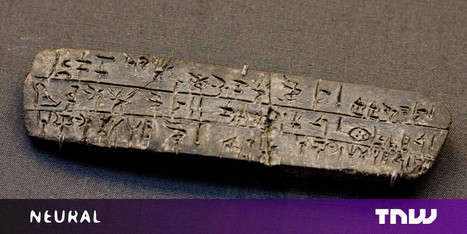A new AI system can automatically decipher a lost language that’s no longer understood — without knowing its relationship to other languages.
Researchers at MIT CSAIL developed the algorithm in response to the rapid disappearance of human languages. Most of the languages that have existed are no longer spoken, and at least half of those remaining are predicted to vanish in the next 100 years.
The new system could help recover them. More importantly, it could preserve our understanding of the cultures and wisdom of their speakers.
Learn more / Mehr erfahren:
https://www.scoop.it/topic/21st-century-innovative-technologies-and-developments/?&tag=Research
Read the full article at: thenextweb.com
Via Gust MEES



 Your new post is loading...
Your new post is loading...










A new AI system can automatically decipher a lost language that’s no longer understood — without knowing its relationship to other languages.
Researchers at MIT CSAIL developed the algorithm in response to the rapid disappearance of human languages. Most of the languages that have existed are no longer spoken, and at least half of those remaining are predicted to vanish in the next 100 years.
The new system could help recover them. More importantly, it could preserve our understanding of the cultures and wisdom of their speakers.
Learn more / Mehr erfahren:
https://www.scoop.it/topic/21st-century-innovative-technologies-and-developments/?&tag=Research